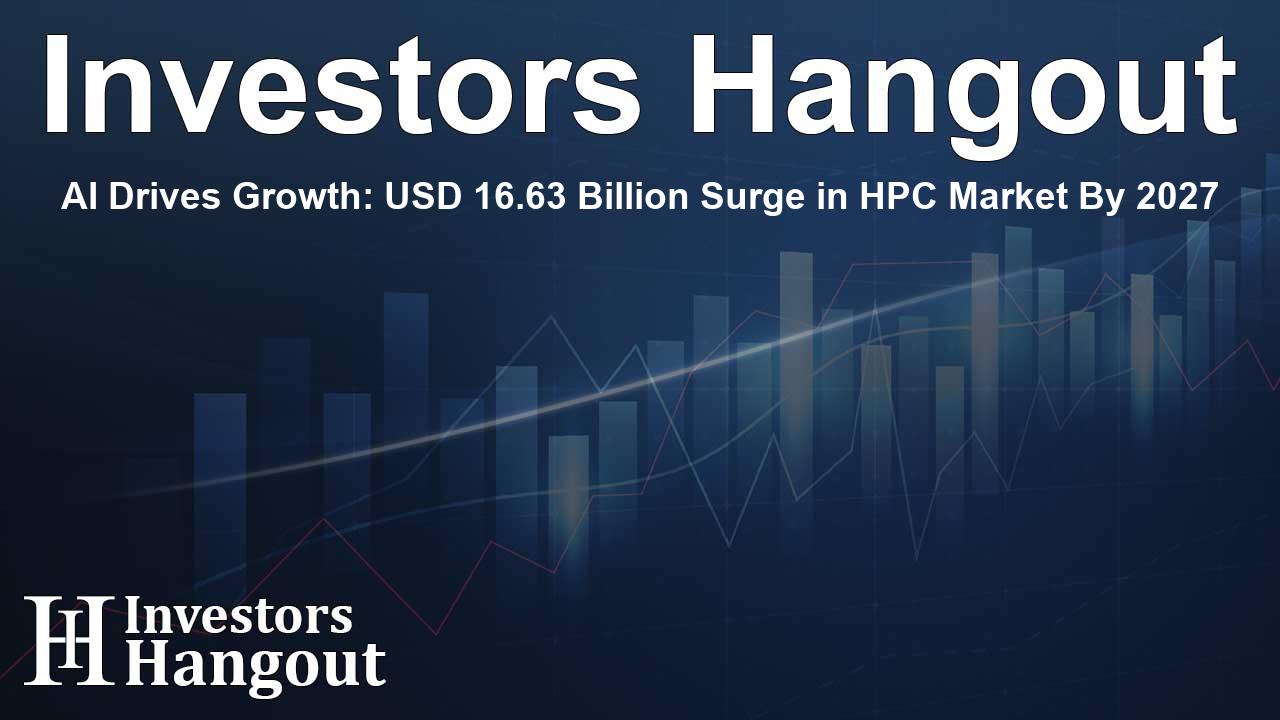AI Drives Growth: USD 16.63 Billion Surge in HPC Market By 2027

Overview of the High Performance Computing Market
The global high performance computing (HPC) market is poised for significant growth, with expectations to expand by USD 16.63 billion from 2023 to 2027. This expansion represents a compound annual growth rate (CAGR) of approximately 7.1%. The acceleration of this market is largely attributed to increasing adoption of big data analytics and a shift towards cloud-based solutions. Yet, potential challenges stemming from high investments and maintenance costs pose ongoing hurdles for adoption.
Current Trends Driving Growth in HPC
Several trends are shaping the future of the HPC market. Notably, many industry leaders, including Advanced Micro Devices Inc., Microsoft Corp., and NVIDIA Corp., are innovating in the delivery of artificial intelligence (AI) solutions. These companies are enhancing the capabilities of HPC systems, making them increasingly integral to sectors such as media and entertainment, genomics research, and defense. For instance, cloud-based HPC has enabled businesses to utilize advanced computing resources without hefty infrastructure investments.
The Emergence of Cloud Computing in HPC
Cloud computing has revolutionized the manner in which organizations access and utilize HPC resources. Major cloud service providers like Amazon Web Services and Microsoft Azure offer tailored HPC services, catering to a diverse set of needs from high-performance virtual machines to massive storage solutions. These cloud services make HPC more accessible, allowing organizations to scale resources as necessary and thus significantly reduce capital expenditure.
AI as a Catalyst for Transformation
AI technologies are not just enhancing HPC capabilities but are also driving more widespread adoption throughout various industries. The shifts toward machine learning and optimization processes have made AI systems increasingly essential for tasks such as financial modeling and life sciences simulations. Leading companies are investing in cutting-edge supercomputing technologies to expand their operational efficacies.
Challenges Faced by the HPC Market
While the HPC market is on the rise, it is also grappling with notable challenges. The high initial costs and ongoing operational expenses associated with HPC systems can be prohibitive for many organizations. For instance, projects like IBM's Watson, which exceeds USD 3 million, underline the substantial costs involved in procuring and maintaining these powerful systems.
Cybersecurity Concerns in the HPC Landscape
As with the rise of any technology, cybersecurity poses significant challenges for the HPC sector. With vast data at stake, implementing robust security measures becomes paramount, particularly as HPC systems increasingly rely on common operating systems like Linux and Windows. Companies like SambaNova and Hewlett Packard Enterprise are leading innovations in secure HPC architectures to address these concerns.
Sector Applications of HPC
High performance computing supports a multitude of applications across diverse sectors. In the media and entertainment sphere, HPC is essential for rendering lifelike animations and video effects. In scientific fields such as genomics, HPC aids in processing extensive data sets produced by Next-Generation Sequencing technologies. Furthermore, in the defense and aerospace industries, HPC is used for simulations and modeling to enhance operational effectiveness.
Investment Opportunities and Future Prospects
The rising tide for high performance computing signifies a wealth of opportunities for investment. As organizations recognize the critical nature of computational power for innovation and productivity, the demand for HPC solutions will continue to surge. Government and private sector investments in exascale and quantum computing technologies further highlight the significant advancements awaiting the industry.
Frequently Asked Questions
What drives growth in the HPC market?
Growth is driven by increased adoption of AI, machine learning, and the need for advanced computing capabilities across various industries.
What role does cloud computing play in HPC?
Cloud computing provides flexible, scalable access to HPC resources, enabling organizations to meet their computational needs without significant infrastructure investments.
What are the main sectors benefiting from HPC?
Sectors such as media and entertainment, genomics research, and defense are among the primary beneficiaries of high performance computing technologies.
What challenges does the HPC market face?
Major challenges include high upfront costs, operational expenses, and cybersecurity threats associated with using complex HPC systems.
How does AI influence HPC?
AI enhances data processing capabilities in HPC systems and drives innovation, increasing efficiency in various applications from finance to bioscience.
About Investors Hangout
Investors Hangout is a leading online stock forum for financial discussion and learning, offering a wide range of free tools and resources. It draws in traders of all levels, who exchange market knowledge, investigate trading tactics, and keep an eye on industry developments in real time. Featuring financial articles, stock message boards, quotes, charts, company profiles, and live news updates. Through cooperative learning and a wealth of informational resources, it helps users from novices creating their first portfolios to experts honing their techniques. Join Investors Hangout today: https://investorshangout.com/
Disclaimer: The content of this article is solely for general informational purposes only; it does not represent legal, financial, or investment advice. Investors Hangout does not offer financial advice; the author is not a licensed financial advisor. Consult a qualified advisor before making any financial or investment decisions based on this article. The author's interpretation of publicly available data shapes the opinions presented here; as a result, they should not be taken as advice to purchase, sell, or hold any securities mentioned or any other investments. The author does not guarantee the accuracy, completeness, or timeliness of any material, providing it "as is." Information and market conditions may change; past performance is not indicative of future outcomes. If any of the material offered here is inaccurate, please contact us for corrections.